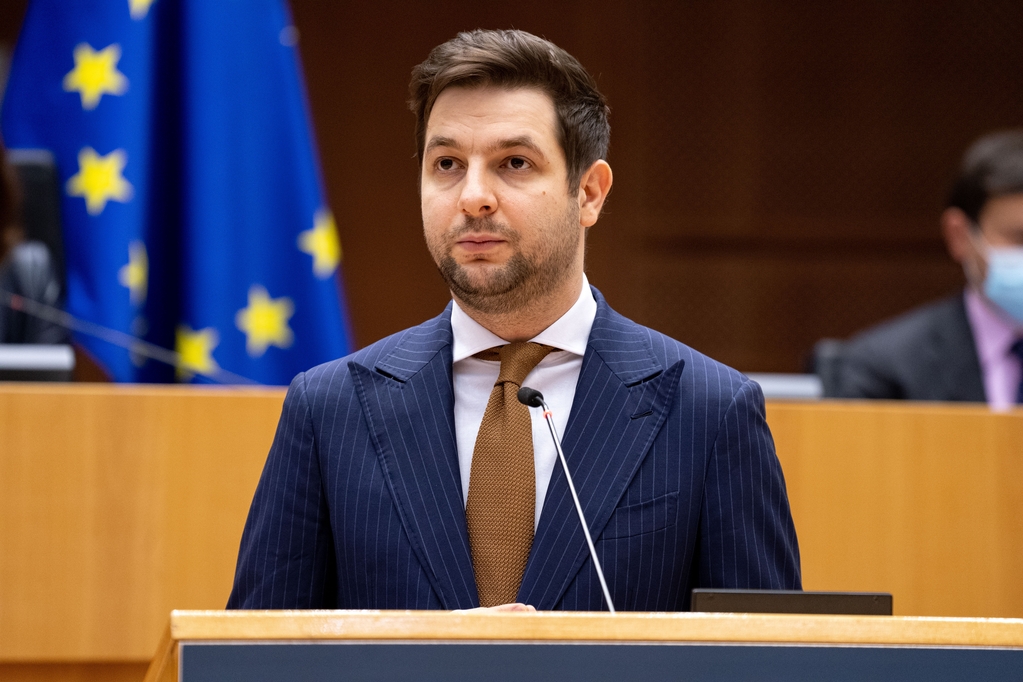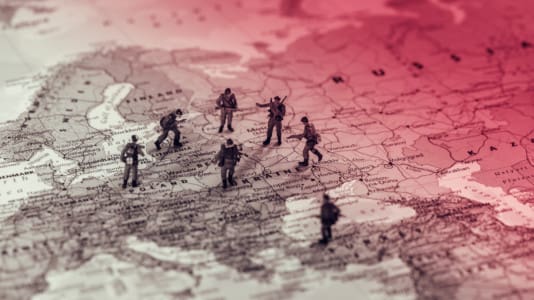What are your expectations from the EU and rule of law sanctions going into the future? There is talk that with the proper judicial reform policy, Poland will soon gain access to the EU funding they were promised.
I think that even if the EU sends some money to Poland, it will be less than what we thought we would receive based on the EU treaties and the agreement we made. Why? Well, they would like to change the government in Poland and Hungary, and the rule of law is now the method they are using.
The main reason, at least the official reason they are using for Poland, is that we changed the system regarding how we appoint judges. However, we are using the same system used in Spain. Every time I say to them that we have the same exact system as Spain, they resort back to the Venice Commission, and say, ‘Ok, some countries have the same system as other countries, However, some countries have a worse culture and a concerning style of politics.’ So, we can’t agree to this kind of double-standard approach. And we don’t agree that Poland has a worse culture than other countries. For instance, if you compare our history, tradition and culture to Germany, I believe they do not have a chance, so this is only the excuse the EU is using to get what they want, which is to change the government in Poland.
In Poland itself, our main opposition party is really just some kind of shadow German party, because [Donald] Tusk is representing, from my of point of view, first and foremost, German interests, and only in second comes Poland’s interests.
And that is why they’re using a lot of different tools to change the government in Poland because Germany would like to have their political competition from Poland gone.
You say that Poland shouldn’t back down over this rule of law issue, but the ruling Law and Justice party looks like it is trying to reform the judiciary as the EU demands. What other option do they realistically have, and why do you take a different approach on this?
[pp id=17579]
I believe backing down on this will only lead Brussels to demand more and more, and we need a stronger response to the European Commission. I think the only reason the EU is even considering sending money is over the veto to the Fit for 55 package. That is the only way to communicate with them. They are not honest with us, and continue to play games, which is why we must fight back. The only reason that they are taking action against Poland is because we have, in their opinion, a worse culture and the wrong type of politics, So, this is all a signal that we need to change our strategy with the EU, and that is why I criticized even my prime minister and also Prime Minister Orbán when they agreed to sign this rule-of-law conditionality last year in December.
So, why do you think that they did that?
Really, I don’t know. It was a mistake. We had a veto, because it was the time when the seven-year budget came up for renewal, and we could have done what we liked, just as Great Britain did, and Spain as well. For Spain in the past, their policy was veto, veto, and veto to achieve their interests or when they felt they were not being treated equally, however, we need to move beyond what happened last year, but we need to understand that only tough politics can be effective with the European Commission.
But without a veto, what kind of tough politics do you propose?
Of course, Poland and Hungary have many forms of leverage, which I cannot describe to the media. However, we need to look where the most important countries have their most important interests when it comes to operating in our countries. As you know, the Visegrad countries of Europe are the biggest economic partners of Germany, and that is relevant for them how we cooperate with their economy. So, we perhaps have to reconsider our tactics.
There’s obviously been some tension between Poland and Hungary, why was it important for you to come here to Hungary for CPAC [Conservative Political Action Conference ] in Budapest?
Because first of all, CPAC is a serious institution that I have been following for many years, and I think that this is the one of the most important places where we can talk about the conservative agenda. Even if we have issues or conflicts, we still need to talk and exchange ideas, strategies, and talk metapolitics. We stand together, and we need to fight for Europe, so discussion on common topics like security is important.
[pp id=37020]
The second reason is because it is clear we still have common goals with Hungary, which of course relates to Christianity, freedom, rule of Law, and fighting a federal Europe. Of course, there are issues, like the Ukraine war that is going on, so we need to cooperate and we need to help each other even if we have differences. Why? Well, the European Commission is working to trigger the conditionality mechanism, and of course Article 7, and if we don’t cover each other when it comes to the Article 7 mechanism, we’ll have much bigger problems than we are having now.
Do you have any initiatives domestically that are important to you right now in terms of the justice ministry?
So, we are doing a lot of things in Poland that are important, such as the prisoner’s work program, which is a very effective and very modern program. Some countries have also asked for advice on our program, because they recognize how effective it is. We are also facing the issue with our judicial system, but of course, while this looks like a domestic problem, it is really a fight with the European Commission.
[pp id=26516]
We’ve had very good results when it comes to fighting against organized crime, and of course, we are fighting for values. This is very important, because we are facing a lot of problems in this area, including from George Soros and his organizations, which are also operating in Poland. We have to work consistently to tackle the Soros left-wing, which promotes the idea that anything goes, and that morals mean nothing. It is not just an issue for the justice ministry, but Poland features strong media outlets and strong NGOs that try to counter these cosmopolitan trends.
Poland’s law on social media censorship has been on the table for a while, when will it happen?
This is a battle, and it’s a battle with the European Union. They of course do not like this law. However, we are still trying to pass it. I think it is important, and if we could effectively achieve this, I believe the other countries can follow us.






